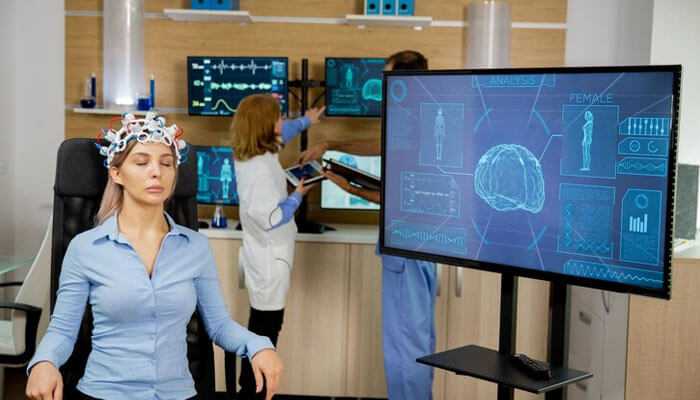The future of technology always feels like it’s just one breakthrough away from changing everything we know. And honestly? It’s not always about flying cars or robot butlers (even though we wouldn’t complain about those). The innovation vibe these days is more subtle—game-changing tools that shift how we think, create, and even define ownership. Let’s dig into how tech will change your world, what’s really bubbling up, and why it matters for all of us.
The Push for Sentient Tech: Are Machines Getting Feelings?
Okay, not “feelings” in a sappy way—but how tech will change your world is edging closer to understanding us on a much deeper level. Emotional recognition software is starting to pop up in places you wouldn’t expect, like customer service bots that can detect frustration or wearable devices that track your mood through tiny physiological changes.
But here’s the twist: developers are now aiming to make these systems not just reactive but proactive. Imagine a virtual assistant that can sense you’re stressed and suggest a playlist, remind you to hydrate, or even dim your smart lights to chill you out. Creepy? Maybe a little. Helpful? Definitely.
It’s not just a gimmick; it’s about bridging the gap between human intuition and machine intelligence. The question is: how much emotional “help” are we really comfortable accepting from our devices?
Redefining Ownership: Can Tech Fix What’s Broken?
The concept of ownership in the digital space is messy, to say the least. If you buy a song online, do you really own it? What about digital art or collectables? That’s where blockchain comes in, but wait—don’t zone out yet. This isn’t just another crypto bro spiel.
Here’s the cool part: the rise of the NFT smart contract could completely change how we buy, sell, and even inherit digital assets. It’s not about overpriced JPEGs (ugh, we’re all over that). These contracts embed rules directly into the purchase—like ensuring creators automatically get a cut every time their work is resold.
Why does this matter? Because it could flip the script for everything from indie artists to property ownership. Imagine owning a piece of a virtual world where your rights are coded into existence, with no lawyers required. It’s still early days, but the potential to reshape creative industries is massive.
Digital Creativity: Where AI Paints Outside the Lines
The future of technology is giving everyone—from seasoned artists to total noobs—the tools to create in ways we never imagined. Case in point: AI generated art.
Sure, it’s controversial. Purists argue that creativity should come straight from the human soul, not a machine churning out algorithmic visuals. But here’s the counterpoint: what if AI becomes a collaborator instead of a competitor? Think about it. Musicians could use AI to lay down beats they’d never have thought of themselves, or designers could mock up prototypes faster than ever.
It’s not just about convenience; it’s about expanding the boundaries of imagination. How tech will change your world to make art better or just more accessible? That’s the debate. But one thing’s for sure—traditional gatekeepers are sweating, and we’re here for it.
The Quiet Revolution: Sustainable Tech That Doesn’t Scream
While everyone’s hyped about flashy gadgets, some of the most exciting innovations are happening quietly in the background. Green tech is having a moment, and no, it’s not just solar panels.
Take biodegradable circuit boards. Yep, those clunky, toxic boards in your devices could soon break down harmlessly instead of clogging up landfills. Or what about water-powered batteries that could store energy for remote areas without relying on rare earth minerals?
It’s not just an environmental win—it’s a design philosophy shift. Engineers are starting to ask, “What if we built technology that worked with nature instead of against it?” This isn’t just a feel-good trend; it’s an investment in a future of technology where tech doesn’t have to wreck the planet to thrive.
Brain-Machine Interfaces: Plugged In or Freaked Out?
Yeah, this sounds straight out of a sci-fi flick, but brain-machine interfaces (BMIs) are creeping closer to reality. The idea? Connecting our brains directly to computers.
We’re already seeing early versions of this with medical tech will change your world, helping paralyzed patients regain movement or communicate using brain signals. But researchers are dreaming bigger—like controlling devices with just a thought or even downloading skills Matrix-style.
Before you go full Black Mirror, though, there are ethical and privacy concerns to untangle. What happens if these systems get hacked? Who owns the data your brain generates? It’s messy but exciting, and the potential for breakthroughs in healthcare alone makes it worth watching.
The Tech Revolution Won’t Be Televised
The future of tech will change your world isn’t just about wild ideas and gadgets that look good in press releases. It’s about subtle shifts that reshape how we live, work, and even feel. Whether it’s redefining ownership, teaming up with AI for creativity, or rethinking sustainability, these innovations aren’t just concepts—they’re already making waves.
The real question isn’t whether we’re ready for the next big thing. It’s whether we’ll recognize it when it’s right in front of us.



